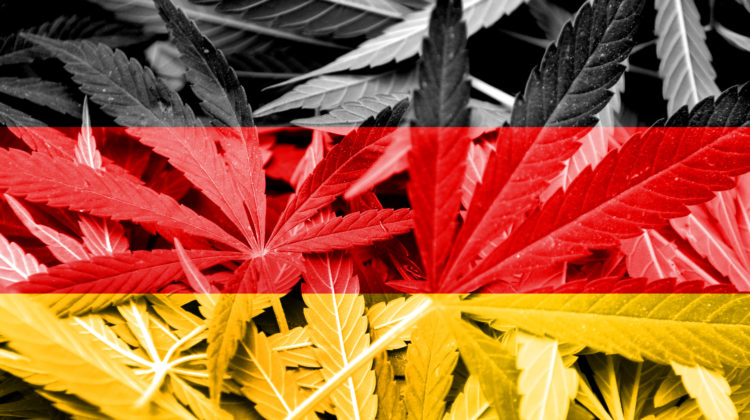
German lawmakers announce plans to legalize adult-use cannabis nationwide. Photo credit: Lukasz Stefanski.
The “traffic lights parties,” including the Social Democratic Party of Germany (SPD), the Free Democratic Party (FDP) and the Greens want to legalize the sale of recreational cannabis for adult-use, reports Spiegel.
“We are introducing the controlled distribution of cannabis to adults for consumption purposes in licensed shops,” the parties said in a report from Euronews.
With this move, lawmakers are aiming to run off the illicit cannabis market in Germany. Given the substance’s widespread usage — at least 4 million Germans use it, according to the FDP — the parties are about to create one of the biggest legal markets in the whole European Union (EU).
The announcement makes Germany one of the first in the EU to formally announce plans to legalize adult-use cannabis nationwide.
Causes and Benefits of the Legalization
The survey that politicians based their decisions showed that cannabis legalization could bring €4.7 billion ($5.3 billion) annually in taxes. It could also save about €1.3 billion ($1.4 billion) per year for the police and judicial system; and create tens of thousands of jobs in the cannabis industry, reports Reuters.
“We applaud the swift move by the incoming coalition to put Germany on the path to legalize adult-use cannabis. This will go a long way toward making Germany the largest domestic market for Cannabis worldwide and a leader in the cannabis space in Europe,” said CEO of the European cannabis market leader, Bloomwell Group, Niklas Kouparanis.
“While this is an important step, there is still much work to be done in crafting the specifics of the German Legal Market. Priorities must include minimizing the risk of abuse, maximizing control and education, while ensuring that the framework is in place to continue providing high-quality cannabinoid-based therapy and medical care,” he continued. “In crafting this plan, it is imperative that the incoming coalition consults with regulators and experts from the industry who will be able to make these goals a reality.”
Another benefit of the coalition’s initiative is promoting harm reduction. If lawmakers enacted the legislation, the nation could freely test cannabis products. Now, as in any other country without full legalization, it’s difficult and fully under the government’s control.
Legislators noted that they will still be strict with the regulations for cannabis advertisements. “We measure regulations again and again on the basis of new scientific findings and align health protection measures with them,” the parties said.
Current Cannabis use in Germany
Meanwhile, recreational cannabis in Germany is prohibited. Possession carries a fine or, in exceptional circumstances, a sentence of up to five years in jail. When it comes smaller amounts of cannabis, which can span from 6 to 15 grams, the charges could be dismissed. But with bigger quantities, law enforcement is merciless.
Overall, according to Germany’s Federal Criminal Police Office, cannabis accounted for 77% of registered drug offences in 2020.
In 2014, the Federal Center for Health Education surveyed 7,000 Germans ages 12 to 25 on their cannabis use, reports Deutsche Welle. It discovered that almost 18% of 18 to 25-year-olds had used cannabis at least once in the previous year. This is up from 11.6% in 2008. Approximately 5% of those polled said they used it as medication on a regular basis.
German Cops Against the Legalization
While members of the “traffic lights parties” have successfully drawn the cannabis “come out” plan, police unions in Germany have recently spoken out against legalization, according to Politico. Policemen argue that there is no sense to “open the door to another dangerous and often trivialized drug,” with alcohol already leading the mayhem.
The head of the German Police Union, Rainer Wendt, warned that legalization would lead to an increase in road accidents. Although there is no solid evidence to support this statement. “It would be the beginning of a stoned future instead of the launch of a modern Germany,” he said.
Medical Cannabis in Germany
Medical cannabis in Germany became legal in 2017. Since then the market has greatly evolved to become the largest in Europe, according to the European Cannabis Report.
Germany has created distinct supply and demand channels for medical cannabis. The Federal Opium Agency oversees medicinal cannabis imports, while the Cannabis Agency is in charge of domestic production. Both are overseen by the federal Institute for Drugs and Medical Devices. Authorities at the state level quality check and test for compliance any products imported from outside the EU.
Importers and wholesalers distribute medicinal cannabis once it is available on the market. The product is provided to patients through pharmacies (on prescription only).
Health Europa reports that on average, cannabis flowers in Germany cost about €23 per gram. Because health insurance companies frequently refuse to pay the expenses, many patients are unable to afford appropriate treatment and are compelled to seek treatment illegally.
Several European countries also have recently attempted to regulate cannabis using various techniques. Luxembourg for instance has recently made cannabis use and cultivation legal. Additionally, officials will decriminalize domestic cultivation in Italy, and abolish administrative sanctions for personal possession. Furthermore, Malta is discussing a proposal that would legalize cannabis while also combating illegal drug trafficking. And a pilot program in France has begun to provide free medicinal cannabis to patients. Undoubtedly, cannabis legalization will bring new opportunities for German economics. It would also fuel the whole burgeoning EU cannabis industry. Experts expect the market will grow to be worth more than €115.7 billion in annual revenue by 2028, according to Prohibition Partners, market intelligence and strategic consultancy company.


Leave a Reply